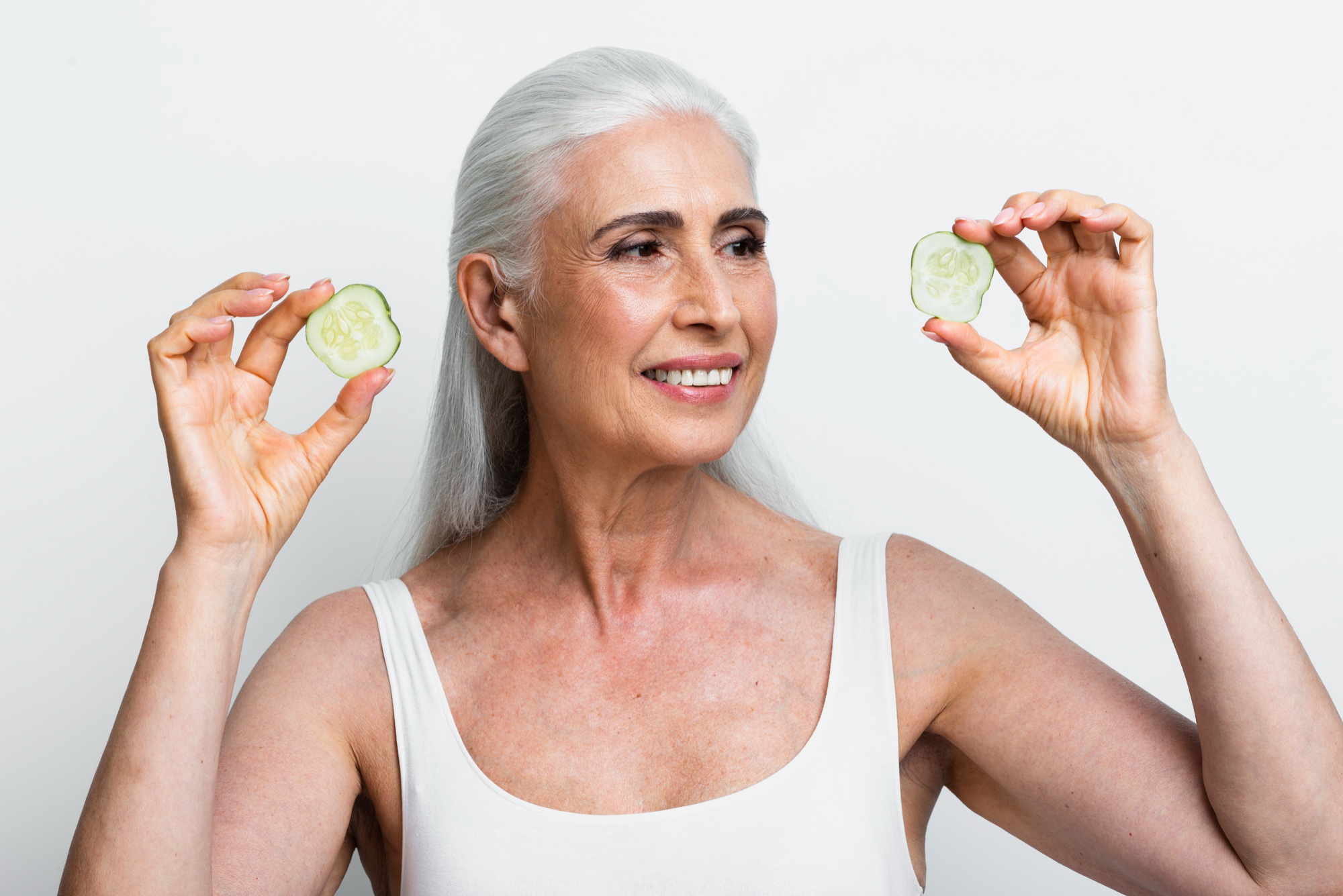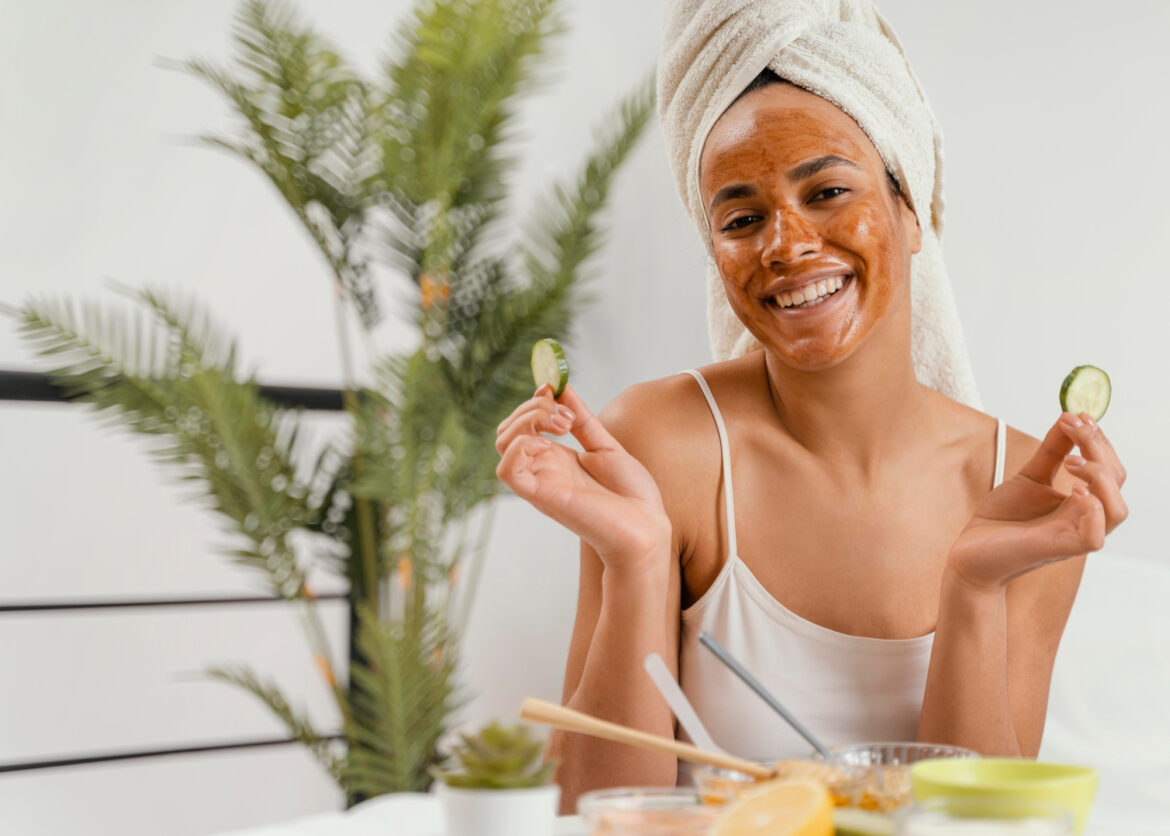Antioxidants are essential for maintaining healthy, youthful skin. They protect against environmental damage, help prevent signs of aging, and promote a brighter, more even complexion. But with so many products on the market, it can be challenging to know where to start. This guide covers everything you need to know about antioxidant skincare, including the benefits, how to use it, and which antioxidants are best for your skin.
Table of Contents
ToggleWhat Are Antioxidants?
Antioxidants are substances that protect your skin by neutralizing free radicals—unstable molecules that can cause damage. Free radicals come from environmental stressors like pollution, UV rays, and smoke, which can lead to premature aging and skin damage. Learn more about antioxidants and their role.

Also Read: Does Your Diet Affect Acne and Spots? A Complete Guide
Why You Need Antioxidants in Your Skincare Routine
1. Protect Against Environmental Damage
Antioxidants help defend your skin from pollution, UV rays, and other environmental factors that cause oxidative stress, leading to dullness and aging.
2. Prevent Signs of Aging
By protecting collagen, antioxidants help maintain skin elasticity and firmness, reducing fine lines and wrinkles over time. Check out how antioxidants combat aging.

3. Even Out Skin Tone and Brighten Complexion
Antioxidants, such as vitamin C, can help fade dark spots and hyperpigmentation by inhibiting melanin production, leaving you with a more even skin tone.
4. Calm Inflammation and Redness
Some antioxidants, like green tea and niacinamide, have anti-inflammatory properties, which can help soothe skin irritation and reduce redness.
Also Read: Pre-Workout Skincare Routine: A Guide to Glowing Skin
5. Enhance Sun Protection
While antioxidants don’t replace sunscreen, they can boost its effectiveness by providing an extra layer of protection against UV rays, which can damage skin cells.
For more on the benefits of antioxidants in skincare, visit WebMD’s antioxidant skincare guide.
Top Antioxidants for Your Skincare Routine
1. Vitamin C
- Benefits: Brightens skin, reduces dark spots, and protects against UV damage.
- How to Use: Apply a vitamin C serum in the morning before sunscreen.
- Best For: All skin types, especially those with uneven skin tone or dark spots.
- Further Reading: Benefits of Vitamin C for Skin

2. Vitamin E
- Benefits: Moisturizes, heals, and works well with vitamin C for enhanced protection.
- How to Use: Look for it in creams or serums, especially in products meant for nighttime use.
- Best For: Dry or mature skin that needs extra hydration.
- Further Reading: Health Benefits of Vitamin E
3. Niacinamide (Vitamin B3)
- Benefits: Reduces inflammation, minimizes pores, and evens out skin tone.
- How to Use: Can be used both morning and night and pairs well with other antioxidants.
- Best For: Sensitive or acne-prone skin.
- Further Reading: Niacinamide Benefits

4. Green Tea Extract
- Benefits: Soothes irritated skin, reduces redness, and provides antioxidant protection.
- How to Use: Often found in toners and serums, it’s gentle enough for daily use.
- Best For: Sensitive or redness-prone skin.
- Further Reading: Green Tea for Skin Health
5. Resveratrol
- Benefits: Anti-aging, protects against UV damage, and promotes skin elasticity.
- How to Use: Use resveratrol serums or creams at night to help repair skin.
- Best For: Mature or sun-damaged skin.
- Further Reading: Resveratrol Skin Benefits
6. Coenzyme Q10 (CoQ10)
- Benefits: Energizes skin cells, reduces fine lines, and improves skin texture.
- How to Use: Often found in anti-aging creams or serums, CoQ10 is safe for both day and night use.
- Best For: All skin types, especially for anti-aging.
- Further Reading: CoQ10 for Skin
Also Read: 7 Ways to Prevent Wrinkles for a Youthful Glow
How to Incorporate Antioxidants into Your Skincare Routine
Step-by-Step Guide
- Cleanser: Start with a gentle antioxidant cleanser containing ingredients like green tea or vitamin C to protect your skin right from the beginning.
- Recommended Product: CeraVe Hydrating Cleanser
- Toner: Choose a toner with antioxidants to prep your skin and remove any impurities left after cleansing.
- Recommended Product: Pixi Glow Tonic with Glycolic Acid and Aloe Vera
- Serum: Apply a concentrated antioxidant serum. Vitamin C serums are ideal for morning use to protect against environmental damage.
- Recommended Product: SkinCeuticals C E Ferulic
- Moisturizer: Use an antioxidant-rich moisturizer to hydrate and protect your skin. Look for ingredients like vitamin E or niacinamide.
- Recommended Product: Olay Regenerist Micro-Sculpting Cream
- Sunscreen: Finish with a broad-spectrum sunscreen SPF 30 or higher. Pairing sunscreen with antioxidants gives your skin maximum protection.
- Recommended Product: La Roche-Posay Anthelios Sunscreen
- Night Cream: For nighttime, use a cream with antioxidants like resveratrol or CoQ10 to help with repair and regeneration as you sleep.
- Recommended Product: Paula’s Choice Resist Anti-Aging Night Cream
Pro Tip: Layering Antioxidants
Some antioxidants work better together. For example, vitamin C and E make a powerful duo for UV protection, while niacinamide pairs well with almost any antioxidant to boost its effectiveness.
For more on layering products, visit this skincare layering guide.
Tips for Getting the Most Out of Antioxidant Skincare
1. Be Consistent
Antioxidants work best with regular use. Incorporate them into your daily routine for ongoing protection and benefits.
2. Store Properly
Some antioxidants, like vitamin C, degrade when exposed to light and air. Keep these products in dark, airtight containers and store them in a cool place to maintain their potency.
3. Patch Test New Products
Sensitive skin may react to certain antioxidants, especially potent forms of vitamin C. Always patch-test on a small area before applying a new product to your face.
4. Use Sunscreen
While antioxidants provide some level of sun protection, they are not a substitute for sunscreen. Always pair them with SPF during the day to fully protect your skin.
For additional tips on maximizing antioxidants, read this guide.
Conclusion: Embrace Antioxidants for Healthier, Brighter Skin
Incorporating antioxidants into your skincare routine is one of the best ways to protect, repair, and rejuvenate your skin. These powerful ingredients work to neutralize free radicals, combat aging, and promote a radiant complexion. Whether you’re looking to reduce fine lines, even out skin tone, or simply enhance your skin’s natural defenses, antioxidants offer a wide range of benefits for all skin types.
By understanding which antioxidants suit your skin’s needs and how to use them effectively, you can create a routine that supports long-term skin health. Start with a gentle antioxidant serum or moisturizer, and remember to pair it with sunscreen for optimal protection. With consistent use, antioxidant skincare can help you achieve a more youthful, glowing complexion that withstands the test of time. Embrace the power of antioxidants and give your skin the care it deserves!
FAQ: Antioxidant Skincare – Why You Need It in Your Routine
1. What exactly are antioxidants, and how do they benefit my skin?
Antioxidants are molecules that protect your skin from free radicals, which are unstable molecules caused by factors like UV rays, pollution, and smoke. Free radicals can lead to oxidative stress, damaging skin cells and accelerating aging. Antioxidants neutralize these free radicals, reducing cell damage, supporting collagen production, and helping maintain a youthful appearance. They also brighten skin, reduce inflammation, and protect against sun damage, making them essential for skincare.
2. Can antioxidants actually prevent wrinkles and fine lines?
Yes, antioxidants help prevent and minimize wrinkles and fine lines by protecting collagen, the protein that keeps skin firm and elastic. By neutralizing free radicals that can break down collagen, antioxidants slow down the aging process, helping your skin maintain its structure and reducing the appearance of wrinkles over time. Regular use of antioxidants like vitamin C and E can help maintain smoother, more youthful-looking skin.
3. How do antioxidants enhance the effectiveness of sunscreen?
While sunscreen protects your skin from UV rays, it doesn’t block all of them. Antioxidants add an extra layer of defense by neutralizing free radicals created by UV exposure that can still damage your skin. When used with sunscreen, antioxidants like vitamin C and green tea can boost sun protection and minimize UV-related damage, helping to prevent sunburn, hyperpigmentation, and premature aging.
4. Which antioxidants are best for sensitive skin?
For sensitive skin, antioxidants with anti-inflammatory properties like green tea, niacinamide (vitamin B3), and chamomile are ideal. These antioxidants soothe irritation, reduce redness, and protect without causing sensitivity. Niacinamide, in particular, is well-tolerated and helps strengthen the skin barrier, making it an excellent option for sensitive and reactive skin types.
5. Are antioxidant skincare products safe to use daily?
Yes, antioxidant skincare products are generally safe for daily use and, in fact, provide the most benefit when used regularly. Many antioxidants, like vitamin C and niacinamide, can be used both morning and night. Just ensure that you follow product instructions and start slowly if you’re using potent ingredients like retinol or high concentrations of vitamin C to avoid irritation.
6. Can I use multiple antioxidant products together, or will they interfere with each other?
You can use multiple antioxidants together, and many of them work synergistically. For example, vitamin C and E complement each other well, enhancing their protective benefits. Niacinamide pairs well with most antioxidants and can help boost their effectiveness. However, avoid using too many strong acids or high-potency antioxidants at once to prevent irritation, and follow product guidelines for optimal results.
7. Is there a specific time of day when I should apply antioxidant products?
Antioxidants can be beneficial at any time of day. Using them in the morning provides protection against environmental damage you’ll encounter throughout the day, like UV rays and pollution. Antioxidants like vitamin C are particularly good for daytime use. Nighttime is ideal for antioxidants like resveratrol and CoQ10, which support repair and regeneration while you sleep. For maximum benefit, consider using antioxidants both morning and night.
8. Can antioxidants help with acne and acne scars?
Yes, certain antioxidants are effective for acne-prone skin. Niacinamide, green tea extract, and vitamin C can reduce inflammation, calm redness, and support skin healing. Vitamin C also helps fade acne scars by promoting collagen production and reducing hyperpigmentation. These antioxidants can improve skin texture, tone, and clarity, making them great additions to an acne skincare routine.
9. How can I tell if an antioxidant product is still effective?
Antioxidant products, especially those containing vitamin C, can degrade over time when exposed to light and air. To ensure effectiveness, look for products in airtight, opaque packaging. Vitamin C serums that turn yellow or brown may have oxidized and lost potency. Store your antioxidant products in a cool, dark place, and check expiration dates to ensure they’re still active and effective.
10. Are there any side effects of using antioxidant skincare products?
Most antioxidants are well-tolerated, but some, like high-potency vitamin C or retinol, can cause irritation, especially for sensitive skin. Side effects may include redness, dryness, or tingling. To minimize risk, start with a lower concentration and gradually increase usage. Always patch-test new products, especially if you have sensitive skin, and follow up with moisturizer and sunscreen for added protection.
